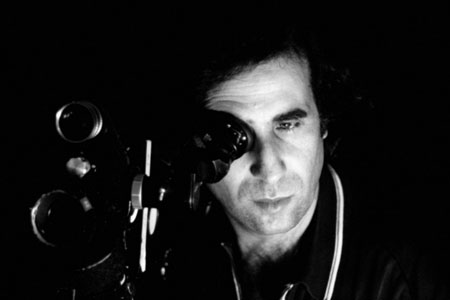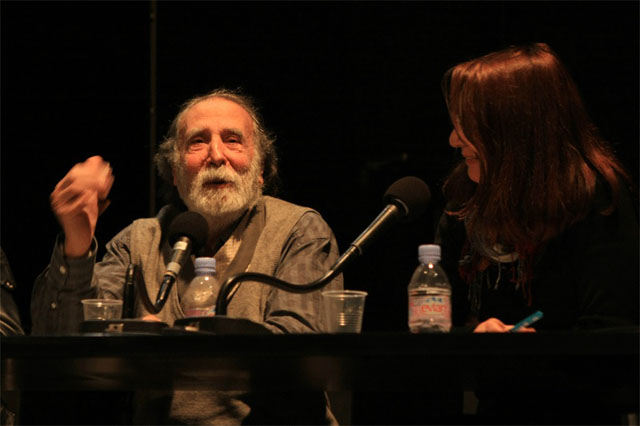“The great French filmmaker Marcel Hanoun, too little recognized, has died of a heart attack,” tweets Adrian Martin. “A true giant of cinema.” On the Facebook page dedicated to Hanoun, Nicole Brenez bids farewell to a “genius,” and La Furia Umana notes that “his last text was a love letter” written for the magazine: “[W]e are so sad for his death, and so proud for this letter. We will protect and remember his Work.”
When Hanoun’s first film, Une Simple Histoire, screened at the New York Film Festival in 1970, it didn’t exactly win over Roger Greenspun, who noted in the New York Times that, though it was made in 1958, “it looks more like 1938, with its dark, low-contrast photography (it was shot in 16-mm.), its unglamorous realism, and its heroine with her penciled eyebrows and her unstylishly bobbed hair…. The telling of the story, the young woman’s narrative, is imposed on the action in such a way as to deny each scene any ordinary dramatic interest and instead to substitute a counterpointing between the description (which is very flat) and the actual realization (also very flat—and with dialogue subdued beneath the narrative voice). At first this method seems pregnant with understated tension, but in time you come to realize that nothing more is happening than appears to be happening, and the method begins to seem silly.” For Greenspun, “in the midst of the many deprivations that constitute his style there is a kind of pretentiousness—ostentationsness, really—as if he were taking pride in poverty.”
In response to another negative review, one by Stuart Byron that ran in the Voice in September 1970, Jonathan Rosenbaum wrote a reply a few months later: “In the frantic setting of a film festival…, there is little chance of a masterpiece like Une Simple Histoire receiving the kind of attention it deserves…. In broad terms, Une Simple Histoire can be described as a Bressonian analysis of an Italian neorealist subject, although each of these adjectives can be applied only to a limited degree…. By linking the present tense of the filmed events with the past tense of the narration, Hanoun encourages us to focus on the various ways in which these two narrative lines complement, echo, or contradict one another…. Une Simple Histoire creates a new kind of filmic reality, a fugue-like narrative form which infuses a simple story with unnatural beauty and power.”
“Were it not for Marcel Hanoun’s Une Simple Histoire I would probably look upon [Alain Resnais’s Hiroshima, Mon Amour (1959)] as the new wave’s most substantial contribution to film art,” wrote Noel Burch in the Winter 1959 issue of Film Quarterly. “Hanoun’s achievement justifies, I feel, in fact demands henceforth a redoubled severity on the part of the film critic. This film’s very existence, which proves that the seventh art is capable of a discipline and a degree of abstraction comparable to that of contemporary painting or music, no longer allows us even to pretend to tolerate the enlightened amateurism of a Francois Truffaut, let alone the ‘professionalism’ of a Minnelli or a Preminger. In this respect, Hanoun’s revolution may be likened to Webern’s, for it is above all by his attitude that the director of Une Simple Histoire has broken new ground.”
Godard is said to have been fascinated by Une Simple Histoire and Jonas Mekas has championed Hanoun’s work in the States, declaring at one point, “Hanoun is certainly the most interesting French filmmaker since Bresson!”
Hanoun is also celebrated for his writing on cinema, and he founded two journals, one in 1969, the other in 1977. You can find a list of his publications in the French Wikipedia entry on Hanoun, where you’ll also see that he was making films and videos right on up to the sudden end. For further exploration, see the official site.
Viewing. A masterclass delivered in Paris (and of course, in French) in 2011; and Gérard Courant’s silent Cinématon #60 (1979).
Update, 9/26: From Gérard Courant:
For news and tips throughout the day every day, follow @KeyframeDaily on Twitter and/or the RSS feed. Get Keyframe Daily in your inbox by signing in at fandor.com/daily.





